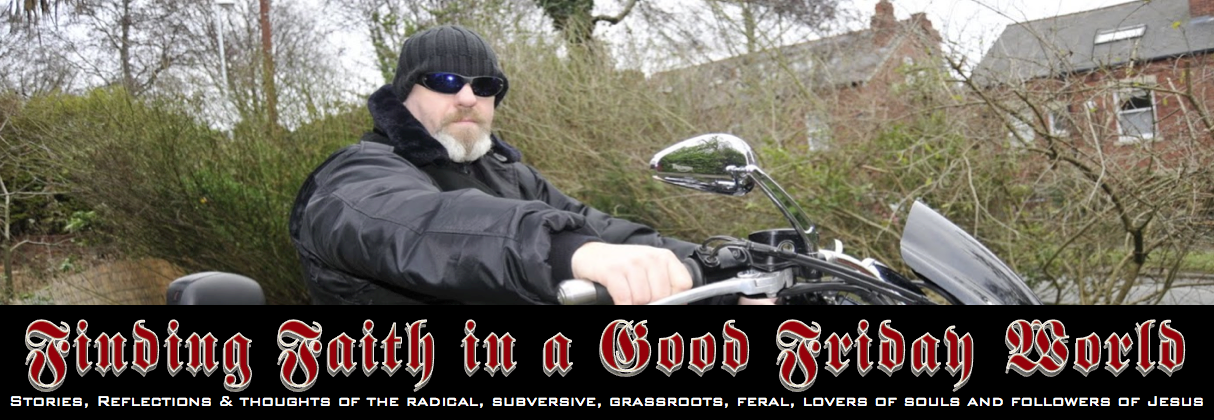In between a funeral on Friday and a wedding on Saturday, I spent some time this weekend in the side garden at the house preparing the soil for planting. There are many similarities in my own personal life in the life of church that I will comment on briefly under the following headings.1. Landscaping the Garden. 2. Landscaping the Soul. 3. Landscaping the Church
1. Landscaping the Garden.
The garden was overgrown. It lacked no encouragement to grow, but it was growing the wrong things in the wrong places. It also was becoming uncontrollable and unbalanced. First came the hard work of re-landscaping. Bricks were moved to give access to all areas, new pathways were dug to enable Rachel and I to get to all the different parts of the side garden. Re-landscaping took hard work and effort. Secondly, weeds were pulled and soil was turned and moved, ground was leveled, rocks and small stones were removed. It was great to see the hard work paying off. Gardening takes time and effort, it's about taming and balance in order to get the ground fertile to grow the right kinds of vegetables and fruit. Now the hard graft has been done, next comes the job of planting and sowing.
2. Landscaping the Soul.
There are great lessons to be learned from the practical and brought to bear on the matters of the heart. I've also being doing some clearing out of the soul. Soul Gardening. In the same way, I was getting fat spiritually, I lacked no enthusiasm to grow but I was growing the wrong things in the wrong places, some things needed bringing under God's control and restoring of the balance. Last week I have dug new pathways - I've decided to read the Bible again in a year, I've decided to experiment with "Living Prayer" this is working on the principle that God is with me moment by moment and develops life as a whole prayer. "Rocks and Stones" are having to be removed - I've made the decision to remove some things from my own life, and walk with God. I'm giving up drinking alcohol and cutting down of my food intake- In effect trying to lose some weight and life a more healthy lifestyle. This all takes hard work and effort. Inevitably "Weeds"are going to have to be pulled and the "Soil"of the soul turned over. I'm working on my reactions to things and trying to do things differently. Like the natural garden these things take time and effort, It's about taming the soul and restoring the balance in order to make the soul more fertile, so that it can grow the right kind of fruit. New things will have to be planted, new experiences of God, new opportunities to serve, new area's to explore.
3. Landscaping the Church
It can be exciting when you apply the same thinking and reflecting on the life of a local church. Of course the church of Jesus Christ is eternal and is God's garden to tend, but in leadership there are things that need to considered. The uncontrollable and the unbalanced. New pathways to be dug, rocks and stones to be removed, ground to be leveled, weeds to be pulled, in order for the ground of the local church which is the Hearts and Minds of people to be transformed, in order for the good things to grow. One of the things I've been dwelling on recently is the need to renew discipleship. This requires weeding out and encouraging the right kind of growth in the right area's. Like a garden that is overgrown, the problem is not growth, but the right kind of growth. There is the danger in re-landscaping, that leadership of a local church gets heavy handed and begins to domesticate the life of the local church and destroys the natural growth of a local congregation. Given the danger, the soil of the local church needs to be tended. From my own perspective some of the rocks that need to be removed are theological rocks, which have come from a wrong understanding of scripture and lead to assumptions being made and then decisions made on the basis of the wrong assumptions. A proper understanding of scripture and theology are therefore essential for good growth. Rocks need to be removed or re-positioned, soil needs to be turned over and weeds need to come out. One of the joys of my sabbatical has been that I have seen the real need for "Jesus Discipleship" based on the New Covenant and not on the Old Covenant. I'm going to come back to this theme of "Discipleship in the New Covenant" in another blog post in the coming weeks.
A good passage to read along side this blog post in John 15: Happy Reading.



